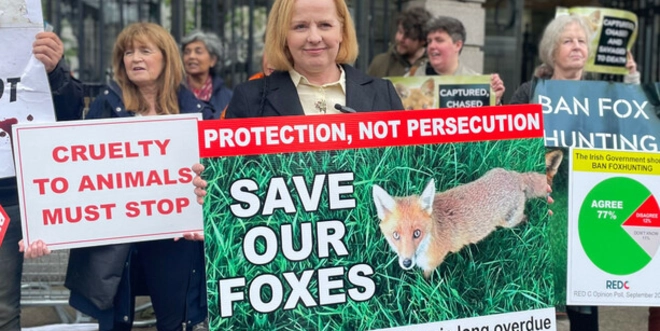A legislative proposal aiming to prohibit fox hunting has advanced through the first stage in the Dáil following a vote that saw 113 TDs support the measure, while 49 opposed it. The proposed amendment to the Animal Health and Welfare Act was introduced by People Before Profit–Solidarity representatives Ruth Coppinger and Paul Murphy.
Despite the bill’s progression, the Government has made it clear that it does not support the legislation and intends to oppose it when it reaches the second stage. This stance highlights a broader strategic approach in which the Government permits early-stage legislative proposals to proceed procedurally, even if it does not intend to support them substantively later in the process.
Government Cites Procedural Grounds for Initial Support
The vote on the first stage was called by Independent TDs Danny Healy-Rae and Michael Collins, both associated with Independent Ireland. It is uncommon for a vote to be requested at this early phase of a bill’s legislative journey, which typically serves as a formal step to allow TDs to introduce proposals for debate.
A spokesperson for the Government described the move to force a vote at this stage as highly unusual and stressed that this specific vote was, in essence, a decision on whether elected legislators should retain the right to introduce legislation. According to the Government’s position, opposing a bill at first stage would undermine a foundational parliamentary principle, effectively restricting the capacity of individual TDs to bring forward legislative proposals.
As a result, the Government supported the bill during the first-stage vote to uphold democratic norms within the legislative process. However, it reiterated that it does not agree with the substance of the proposed ban and will formally oppose the bill at its second reading, where the focus will shift to the bill’s merits and legislative viability.
Wider Legislative and Political Implications
This development reflects an ongoing tension between the procedural rights of TDs and the executive’s responsibility to assess and manage the legislative agenda. The proposal to ban fox hunting has previously sparked political and public debate in Ireland, with strong opinions on both animal welfare and rural tradition influencing the conversation.
If the bill proceeds to further debate stages, it will likely reignite discussions about ethical considerations in traditional rural practices, enforcement mechanisms under animal welfare law, and broader implications for similar legislative efforts.
 The Daily Star Ireland
The Daily Star Ireland

